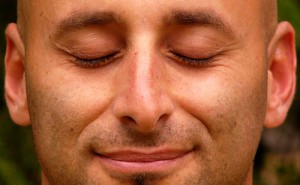 This short essay by Philip Goldberg offers some encouraging news. He says that underneath all the political brouhaha by the fundamentalist religions in recent years, there is a subtler, larger movement occurring in our culture. He says the fastest growing category of American religion, especially among young adults, is “spiritual but not religious.”
This short essay by Philip Goldberg offers some encouraging news. He says that underneath all the political brouhaha by the fundamentalist religions in recent years, there is a subtler, larger movement occurring in our culture. He says the fastest growing category of American religion, especially among young adults, is “spiritual but not religious.”
Tom Z
America the Mystical: Oh Beautiful for Spacious Minds
Philip Goldberg – Interfaith Minister, author of ‘American Veda: How Indian Spirituality Changed the West’
When contemplating the history of religion in America from a certain perspective (say, the perspective of Bill Maher, Sam Harris or Christopher Hitchens) it would be easy to crack up over its absurdities, sneer at its defiance of logic and science, or fume over its hypocrisies and authoritarian dangers. All true enough, sadly. But there is another strain of American spirituality, one that is more attuned to the enlightened thinking of the Founders and the freedom we celebrate on Independence Day.
Fundamentalists, Christian supremacists and biblical literalists have made so much noise in the past few decades that they would appear to be in the ascendancy. In truth, quieter, subtler and more pervasive forces have given the nation a religious makeover. If you look at surveys from reputable pollsters like Gallup and Pew, you can see it gathering strength over time, especially since the baby boomer generation came of age and started searching for meaning outside the borders of both conventional religion and conventional secularism. Those studies point to these trends:
- Independence: To a greater extent than ever, people make their own choices and think of spirituality in individual terms rather than as a matter of membership in a particular organization or tradition.
- Direct experience: Inner spiritual awareness and personal transformation have become more important; adherence to a doctrinal belief system has become less appealing.
- Pluralism: Respect for traditions other than one’s own has never been higher. Belief that one’s own religion is the best one for everybody has never been lower.
- Fluidity: Eclectic seeking and spiritual experimentation has risen; exclusivity has declined.
- Intellectual freedom: Fewer and fewer people read scripture as literal truth or believe that religious dogma trumps the findings of science and history.
- Oneness: The separation of human and divine, or of the individual and the cosmic, is increasingly rejected in favor of an incontrovertible connectedness.
A skeptic might ask how these assertions square with surveys showing that more than 90 percent of Americans believe in God. Those polls seldom ask the obvious follow-up question: What do you mean by God? In fact, most Americans see God — if they use the G word at all, and fewer and fewer do — as a nonpersonal energy or universal intelligence, more of an It than a He, and more like the Force of Star Wars than the human-like deity of medieval paintings and fundamentalist sermons.
If this seems more like Eastern spirituality than conventional Western religion, it is no coincidence. The core teachings of Hinduism and Buddhism have helped shape our spiritual landscape ever since the first English texts on Asian religion found their way to folks like John Adams, Thomas Jefferson, Ralph Waldo Emerson and Henry David Thoreau. That our founding thinkers — and countless open-minded citizens after them — saw something of value in those teachings says as much about the true spirit of America as it does about the East. In researching my own book on the subject, I was struck by the remarkable compatibility of ancient yogic insights and the American values of individual autonomy, freedom of inquiry and pragmatism. That’s why Swami Vivekananda, the first Indian guru to impact the West, wrote a poem called “To the Fourth of July.” (That he died on that date — as didSwami Prabhavananda, who mentored Aldous Huxley, Christopher Isherwood and other influence makers — is fitting to mention on this occasion.)
Americans are romantics and idealists who abhor stagnation and never settle very long for complacent certainties. At the same time, we are practical, evidence-based problem-solvers. Those qualities apply to matters of the spirit as well as to worldly affairs. It may not always seem that way amid the desperate raging of fanatics, science deniers and theocratic thumpers of Bibles and Qurans, but those values eventually prevail.
No fact summarizes my argument more succinctly than this: The fastest growing category of American religion, particularly among young adults, is “spiritual but not religious.” That the land of the free gave birth to such a designation makes perfect sense, and those who identify with it should not be dismissed as frivolous or noncommittal, as certain critics have contended. They are, for the most part, serious questers who are not inclined to take on faith either religious dogma or facile secularism. They are mystics and idealists who also happen to be rational, pragmatic and independent. What could be more American?
Source: http://www.huffingtonpost.com/philip-goldberg/america-the-mystical-oh-b_b_886422.html
Photo: Courtesy of Premasagar Rose
